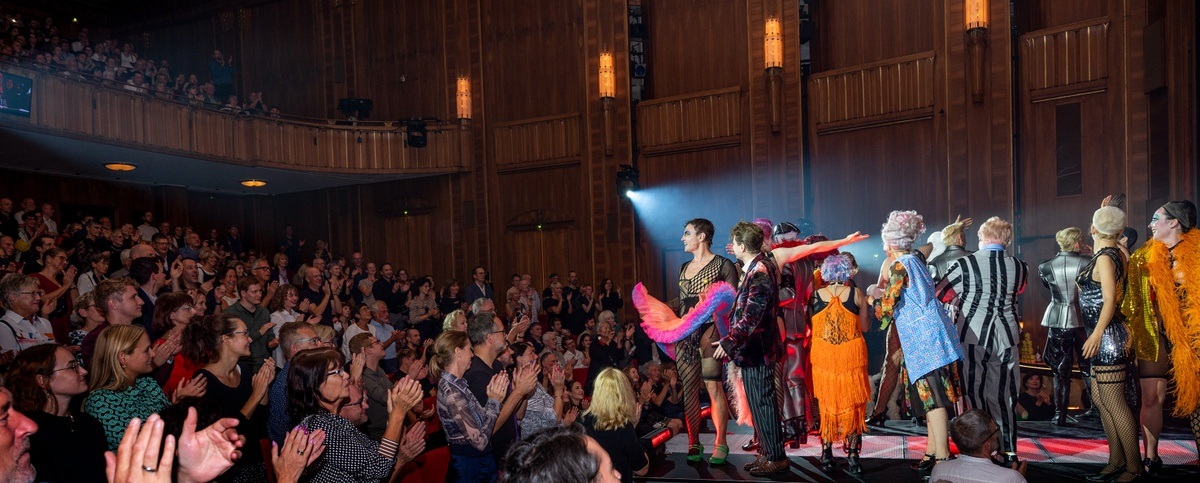In the organizer's words:
Μέρα Σάββατο (It was on a Saturday)
by Theater KET / Irène Bonnaud (Athens / Paris)
On a Saturday, 25 March 1944, a Wehrmacht commando organized the deportation of almost 2,000 Jews from Ioannina to Auschwitz-Birkenau. Almost the entire Romaniot-Jewish community, the oldest Jewish community in Europe, which had found refuge in the capital of the Epirus region in north-western Greece 2,000 years earlier, was wiped out. The fact that this was a Shabbat and also the Greek national holiday was part of the Nazis' tactic of collective humiliation. For the French theater maker Irène Bonnaud and the Greek actress and singer Fotini Banou, their second collaboration focuses on the question of how the testimony of the survivors of the Shoah can remain alive when those who can give first-hand accounts of the atrocities are no longer around. At the same time, relativizing, denying or instrumentalizing the crimes poisons the public and political discourse in Europe and far beyond. The text and music collage of ΜΕΡΑ ΣΑΒΒΑΤΟ (IT WAS ON A SATURDAY) tells a little-known chapter of the annihilation of European Jewry by interweaving notes by the important Greek writer Dimitris Hadzis, interviews with the few survivors and Jewish-Greek and Jewish-Spanish songs. With tenderness and tenacity, this extraordinary evening tells of mourning for a vanished world, but also of resistance. The theater becomes the guardian of memory.
[On a Saturday, 25 March 1944, a commando of the German Wehrmacht organized the deportation of almost 2,000 Jews from Ioannina to Auschwitz-Birkenau. Almost the entire Romaniot-Jewish community, the oldest Jewish community in Europe, was wiped out. With tenderness and tenacity, this extraordinary performance by the French theater maker Irène Bonnaud and the Greek actress and singer Fotini Banou tells of mourning for a vanished world, but also of resistance.
Location
Organizer | Festival

























